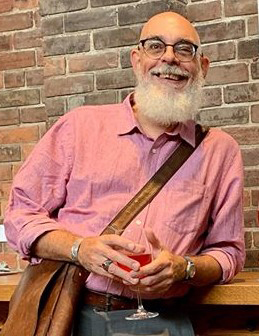
Written by guest blogger Art Redding.
Boston is a pleasant city in summer.
Thanks to the Social Science and Humanities Research Council, I was able to afford a visit to the Howard Gotlieb Archival Research Center at Boston University. The center owns a rich collection of American crime fiction materials, including manuscripts and ephemera by Charles Willeford.
August 2019 seems a long time ago. Weekday mornings I took an MBTA train into the city, where I spent workdays poring over sources for my project on “tough guy” writing. After the reading room closed at 4, I might wander over to the Gardner Museum, or take in a ballgame at Fenway Park, or listen to jazz by the students of the Berklee College of Music, or cross the BU bridge to browse the Cambridge bookstores and, later, meet friends for drinks. Weekends I spent on the Cape or in Concord, swimming in Walden Pond.
Those were good times, and productive. Scholarship has its genuine pleasures, none of which are entirely diminished by the recognition of the hard times academics found ourselves in: the opioid epidemic, which claimed countless lives and devastated so many families; the systemic roll-back on campuses and everywhere of the hard-won gains of the Civil Rights era and after; the free-fall of the humanistic disciplines and the evisceration of tenure, which bedevils the lives of graduate students and sessional academics; the decimation of the middle-classes more generally and the concentration of wealth in the hands of the piggish one percent; the oafishness and brutality that passes for public discourse in the digital age; the resurgence of the racist right in the US and abroad; the belligerent dolt in the White House, a standard-bearer for the cocktail of misogyny, venality, vanity, insecurity, arrogance, fraudulence, and entitlement summed up in the voguish term “toxic masculinity.”
“The Eisenhower Blues” aims to disinter at least a small layer of the complex, racially fraught, often ugly, and sometimes vital cultural stratigraphy of American masculinity.
And the concerns of 2019, like the pleasures of last summer, seem remote in our days of isolation. But the social distresses they name remain a part of the collective social fabric, however rent by pandemic. They remain, even as the difficult but (let’s face it) unendingly inventive work of restoration is taken up, as we slowly bind our society—however changed— and our economy—let’s try to make it a bit more just, this go’round—back together.
And so will there be pleasures. Someday, we will be back “in touch.”
A lot of us, I know, are having a hard time finding ways to be productive. Colleagues have spoken to me about their crises of confidence. It is hard to get any research done when the libraries and the archives are shuttered, when—even were travel not discouraged and dangerous—there’s really nowhere to go. It is hard to preserve the illusion that your research matters when the bodies are piling up. We should recognize these hardships too, and the toll this is taking. Let’s be safe, hold on, be kind to one another and forgiving to ourselves.
In isolation, I’m going to raise a glass to the good times, to the pleasures of thought, to the joys of research, to the once and future and—who knows?—maybe even ongoing thrills of scholarship.
I hope other shut-ins will join me.
Congratulations to Canadian Review of American Studies on celebrating its first half-century.
Thanks to Martin O’Brien and Andrea Stone for the hospitality. Thanks to Janet Friskney for her invaluable assistance. Thanks to the Gotlieb Center archivists. Thanks to Markus Reisenleitner and Susan Ingram for the photo. Thanks to Percy Walton, editor of CRAS, for championing my work.

Art Redding is Professor of English at York University in Toronto.
His latest article in the Canadian Review of American Studies entitled “The Eisenhower Blues: Returning GIs and Racial Masquerade in Post-War American Film and Fiction” is free to read for a limited time here.
The UTP Journals blog features guest posts from our authors. The opinions expressed in these posts may not necessarily represent those of UTP Journals and their clients.
Comments on this entry are closed.